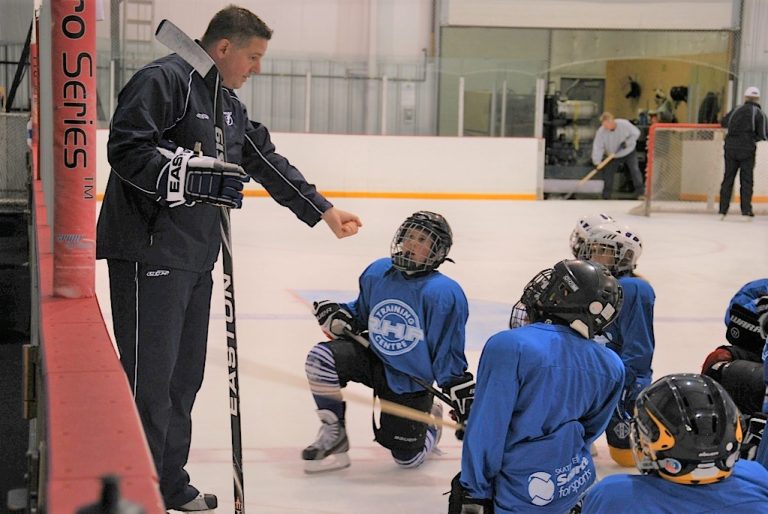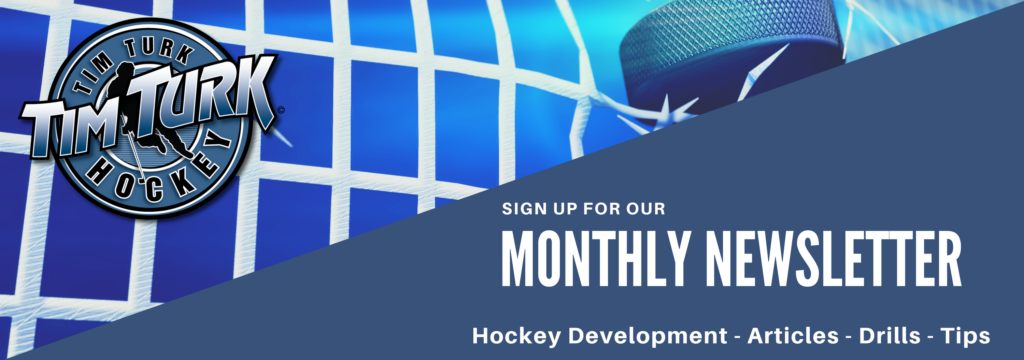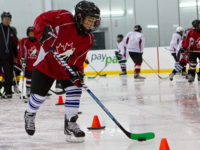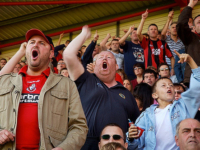Coaching a minor hockey team can be an extremely rewarding experience. Whether you are doing so as a parent or simply as a fan of the sport, there are many things you can learn while teaching younger players about the game. There are different styles and techniques when it comes to coaching, and you might enjoy speaking with other coaches to pick up some pointers.
If you are considering becoming a hockey coach, there is a tough decision you must make regarding if you want to stick with the same level of play or continue to coach the same group of players. In some leagues, you may be required to do one or the other, but in many cases, you can make the choice for yourself.
Coaching the Same Level
There are many different levels of minor hockey, such as Bantam, Peewee, Midget, and Juvenile….Now U12 U14, U16, U18 and U20 (U -standing for Under that age). When you choose to stick with one level, you will stay within that level and receive a new group of kids every year or two. Some people prefer this method for the consistency throughout the day, but there are many things to consider if you are going to stick with the same level.
Pros of Coaching the Same Level
- Consistent Training Regimen – for the most part, kids will be joining your team at the same point in their development. This means that while some will be more naturally talented than others, they will usually all need to work on the same skills and techniques. This gives you the ability to create a training regimen that will be relatively consistent year after year. You can work on the same skills and drills that apply to the level of play you are coaching.
- No major rule changes – Other than leaguewide changes that sometimes take place, you will be playing on the same level every year, so the rules will be largely the same as well. Adapting to new rules as you progress through different levels can be quite a challenge and sticking with one level allows you to avoid this for the most part.
Cons of Coaching the Same Level
- Burnout – If you are a person that likes to experience a dynamic environment with a lot of change, you may find that you get easily burnt out by coaching the same level year in and year out. You’ll be going over a lot of the same drills and routines that you did last year, and it might not excite you very much if you must keep doing it all over again.
- Lack of Personal Growth – you may find yourself stagnating as you remain in the same level every year. If you are coaching hockey as a challenge to yourself, sticking with one level might become boring and redundant for you.
Pros of Coaching Same Group
- Bonding Experience – When you coach the same group of kids every year, you really get to know them on an individual level. This can be a fantastic bonding experience for both you and the players on the team. This can be an especially nice benefit if you have a son or daughter on the team, as you can watch them grow through every season of hockey.
- More time to develop – One year isn’t that long in the grand scheme of things, and you may feel like you didn’t quite finish the job after a season in one level. If you stay with the same group, you can follow them into the next season and continue to work on honing their skills and smarts.
- Less time to adapt – Every season, you and your team will know each other better and better, requiring less time to get into the full swing of thing.
- Better chance for success – Winning isn’t the most important part of minor hockey but sticking with the same group for years at a time will give the team a better chance to succeed as you help them develop under your system. Consistency in coaching can be very beneficial for the players on the team, and they will appreciate that they are put in a better position to be victorious every year.
Cons of coaching the same group
- Potential for Complacency – You may grow tired with the same group of people year after year, and this might make you complacent. The players could also feel the same way, and they might not play as hard for a coach that they’ve known for years as they would for a fresh new face with a different style.
- Lack of outside influence – To go with the previous point, you might find that your coaching style doesn’t work for some of the kids, and they may be hurt by the inability to take on outside advice and play for somebody else.
- Strained relationships – If you and a certain player or players (and parents) don’t see eye-to-eye, you might have a long-term problem on your hand. These relationships can be saved and worked on in some cases, but other times they only get worse as time goes on, and this is detrimental to both the player and the coach.
In Conclusion
There are clear advantages and disadvantages to both styles of coaching. If you feel that you would prefer to be greeted by the same group of players at the beginning of every season, then you might enjoy going through the different levels with them. If, however, you enjoy teaching the same set of skills and age of players, you can be a coach in the same level for years to come. It will really come down to your personality and your goals for your minor hockey coaching career. There is no right or wrong answer, and you will likely find fulfillment no matter what route you decide to go.
– Article by Tim Turk Hockey






